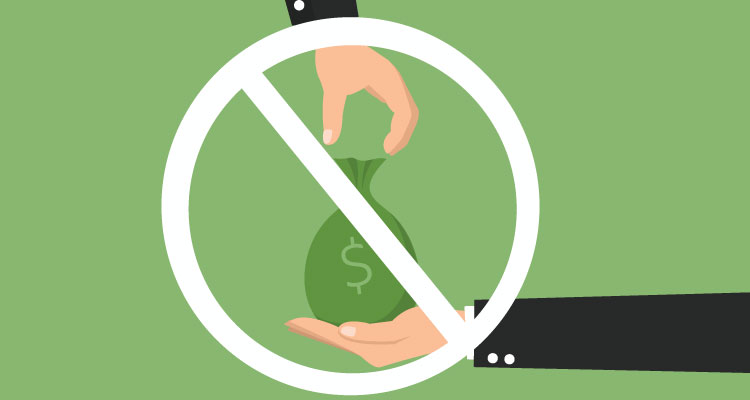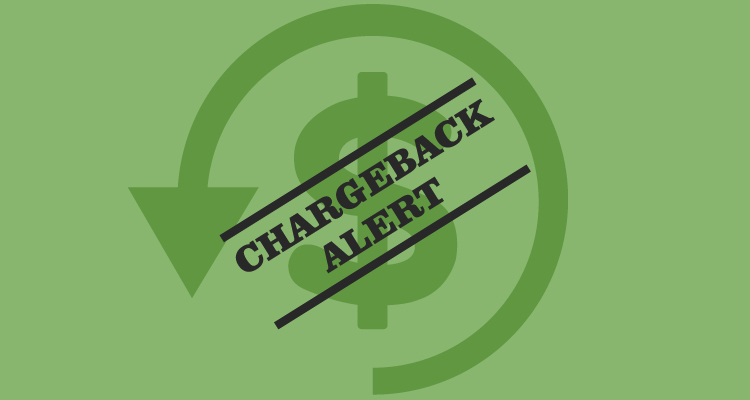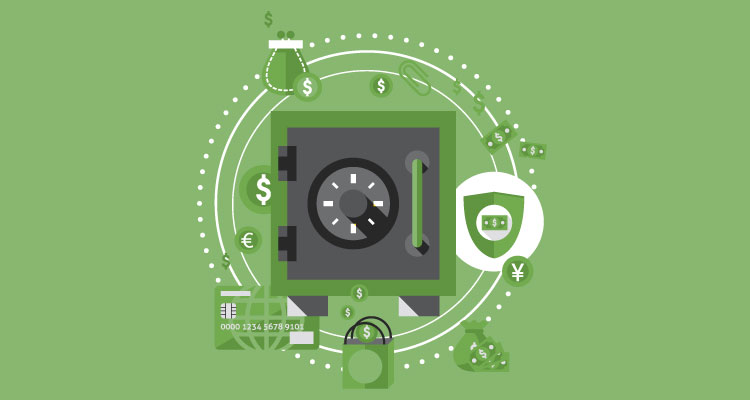Whether you run an online business, a high street store or a B2B service, chances are that you will invest a significant amount of time and money into your marketing, advertising, and sales activities. In order to make a profit, you need to find people that are willing to buy from you, and make sure they’re aware of your products or services and then convince them to make a purchase.
While it’s important to focus on all of this process, if you want to increase your turnover and raise your profits, it’s also highly important that you don’t get complacent once the transaction has been set in motion.
In other words, you don’t want to fall at the last hurdle and find that you lose out on the cash you’ve already earned. Just as important as getting your customer to want your products or service is to make sure that they are willing and able to make a payment without the money being lost in transit.
It’s one thing to lose money by missing out on a customer, but it’s even more frustrating and upsetting to do the work and make the sale and still lose the money.
With that in mind, let’s take a look at some of the ways that your payment can end up going missing and what you can do to protect yourself when payment is due.
Table of Contents
ToggleDifficult Clients and Customer
The first reason you might find yourself with money out of your pocket even after delivering the work or item is if a client or customer refuses to pay or is just slow to get around to paying their bills.
If you are a freelancer, then no doubt you will have encountered customers who just don’t seem to want to pay. These are the individuals that agree to pay on receipt of your work but then go strangely silent once it’s time to cough up what they owe you. Unfortunately, this is something of a common occurrence, and there are many reasons for it.
Often, the “getting paid process” may come down to a particular entitlement mixed with laziness. This is the same reason that you might put off paying your own friends back for a loan even though you know you should. Money stresses people out. Losing money stresses people out even more.
Having to log onto your online banking, and be greeted with a shockingly low balance and then you need to pay that amount out to someone else is as stressful as it gets. Especially if your online banking partner is slow or includes too many security steps.
As the service provider, the best thing you can do for your clients and customers is to make sure that it is as easy as possible for them to pay you for your work. This may mean sending a reminder by email with a ‘Pay Now’ PayPal button integrated right into the body of the message. Or it might mean setting up a very simple and straightforward payment portal on your site.
This blog has discussed in the past how payment processing is becoming easier and easier thanks to modern technology, and you should embrace that as far as possible. Secure payment processing is also an excellent way to remove a “barrier to sales” and to get people to buy in the first place who might otherwise have moved on and looked elsewhere.
Another way to avoid scenarios where you don’t get paid is, of course, to only accept payment in advance. This is something that many service providers – especially sole traders – will feel loathe to do at first. It can even feel rude sometimes. But this is the order of the transaction in most business models, and it’s one that you can reasonably and politely explain.
A compromise is to accept payment on the receipt for smaller orders but to require payment up front for enormous orders that involve a big-time investment on your part.
If a client proves not to be trustworthy in this regard, then it may be time to ditch them. This might go against every instinct you have as a business owner, but it is important to recognize when a client is no good for you and to learn how to stop working with them tactfully so as not to burn any bridges.
Refunds and Disputes
Customers that refuse to pay are difficult to work with, but they are still arguably less frustrating than clients or customers that demand refunds even when the work/product was delivered as agreed and delivered to a high standard.

A refund demand makes life difficult because it becomes a matter of your word against theirs. You think that the work was suitable, and they do not. How do you decide and make sure that you aren’t losing out unfairly?
Of course, the first place to start is by ensuring proper quality controls (QC) and by leaving a little space for any legitimate complaints. Make sure you have invested in your product so that you can be completely confident as to the quality of what you’re offering.
Likewise, make sure that you are aware of any possible defects or issues that could slip through the gaps so that you know which complaints are likely to be legitimate. Similarly, make sure that the consumers know precisely what it is they are purchasing (ensure nothing is miss-sold. Be certain that your customers are not receiving a cheaper version of what you have promised).
At the same time, it also pays to have a refund policy set in place. In other words, define the process and the criteria on your website or when you are marketing your products and services. This way, you can inform your potential customers as to how they should go about lodging complaints or how they can address any issues they may have.
This process puts the ball in your court and means that you can manage the process to define the steps that need to be taken, in the case of a dispute or refund. In this way, you can verify the issues and crucially – you will have the opportunity to make an attempt to solve any problem before you lose the payment. The process should be easy, of course, but should also involve enough process that no one tries to take advantage of it.
Chargebacks and Third Parties
Things become a little more complicated if a third party is involved in your business processes, such as Amazon or the Google Play Store. In this case, refunds might not be processed by your organization, and you can risk getting stung by bad reviews — or worse, some third parties, such as Amazon refund any complaint and the charge bounces back on the merchant.
The best thing to do in this instance is to get in touch with the payment processor (even if that’s PayPal!) and explain your situation. Remember: you are their customer and you help them to bring in a lot of money. If there is a dispute and you are a big seller through their channel, then often they will simply refund you the money to maintain your loyalty.

Likewise, chargebacks can also complicate matters. Chargebacks are refunds that are issued by credit card companies, which offer their customers protection against transactions that they are unhappy with for a variety of reasons.
The first defense, in this case, is knowledge. Know the reason codes for chargebacks, which are as follows:
- Reason Code 41: Cancelled Recurring Transaction
- Reason Code 53: Not as Described or Defective Merchandise
- Reason Code 57: Fraudulent Multiple Transactions
- Reason Code 60: Illegible Fulfilment
- Reason Code 62: Counterfeit Transaction
These regulations will reach you in the form of a retrieval request from the card issuing bank, and you will need to respond to them inside of two weeks. Don’t be afraid to contact the customer or client before going ahead and issuing the refund. You are entitled to dispute these cases and to get a better understanding of the claimant’s viewpoint.
Consider carefully whether you might be vulnerable to any of the reason codes listed above (consider carefully whether recurring transactions are right for you) and make sure that customers know that they can contact you directly if they do have any issues with their product or service.
Another solution here, of course, is simply not to accept credit cards or to discourage customers from using them by including a small fee. While refusing credit card payments might lose you some customers, including a small fee, is relatively common practice and shouldn’t be met with too much resistance.
Counterfeit and Fraud
Customers that abuse chargeback’s or refund policies are primarily engaging in fraudulent behavior. You can count on the fact that their will be customers and clients though, who will be even more on the scale of persons who are setting out intentionally to steal from you.
Theft doesn’t always involve shoplifting or burglary – sometimes it can appear like any other transaction at first.

This is why it is so important to invest in measures to protect your business from counterfeit and fraud. A good starting point for face-to-face businesses is to invest in counterfeit money detectors. These detectors can allow you to check bills and ensure that they are valid tender.
This practice can help you to avoid fraudulent payments. Always be aware that the customer might not have been aware that their note was a fake.
Likewise, it can be just as important to train your staff to be on the lookout for fraudulent credit cards. Make sure that the name appears to match the user (while being sensitive), always ask for a signature if they don’t know their PIN code, and consider using the Luhn algorithm to ensure that the card has a legitimate number.
It’s also a good idea to install cameras on your premises if you are operating face to face and to collect as much information about your customers as possible if you are running online. This way, you will increase your chances of tracking down any fraudsters or thieves. Better yet, this might help you to prevent them from attempting fraud to begin with — choosing instead to focus on easier targets.
Bounced Checks and Payments
In other scenarios, a customer or client might pay with an invalid payment method unintentionally. The most obvious example of this might be a bounced check or direct debit.
Again, the easy defense against this type of fraud is not to accept checks. This is an increasingly common policy for businesses, now, so you shouldn’t find it is a big problem for your business. Likewise, you may want to consider using standing orders rather than direct debits. This will give you a little more control over the payments as it means it will be your prerogative to cancel the payments, not the customers’.
If you do find yourself out of pocket due to a bounced payment, then the usual process is to terminate the service and then to inform the customer that they owe money. Depending on how much they owe and how you wish to proceed, you might even consider using a debt collection agency to get your payment.
Be sensitive to their situation, though, contact the customer or client first and don’t be heavy handed.
As ever, prevention is going to be better than a cure, though. If you are concerned that your customers may be unable to pay for the products or services they are ordering from you, consider doing a basic credit check first.
If you’re looking for a more in depth guide on bounce checks and payments, read what to do if a client’s check bounces.
Closing Comments
While it is important to make sure you get the money you are owed, it is also important to be careful about how you go about it securing your payment. In cases where clients are simply being involved or are engaging in fraudulent behavior, then you are within your rights to come down on them hard.
However, where customers feel genuinely dissatisfied with the service they received, or they are struggling financially, it is important to take care of them and to put their happiness and satisfaction before your own.
Sometimes it is worth losing a little money if it means building trust and getting good publicity, and you can consider this act, something of a loss leader. What matters is protecting yourself against the big losses and making sure that no one is taking you for a ride.
Put this advice into practice, and hopefully, you can protect yourself against having gigantic losses from the inevitable fraudsters.
And, of course, let us know in the comments if there is anything we have missed. Have you encountered a difficult client or customer lately? What did you do to resolve the issue?












